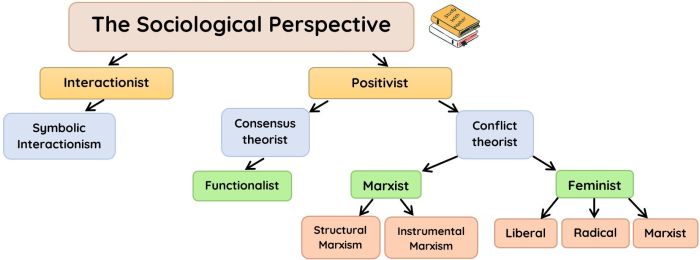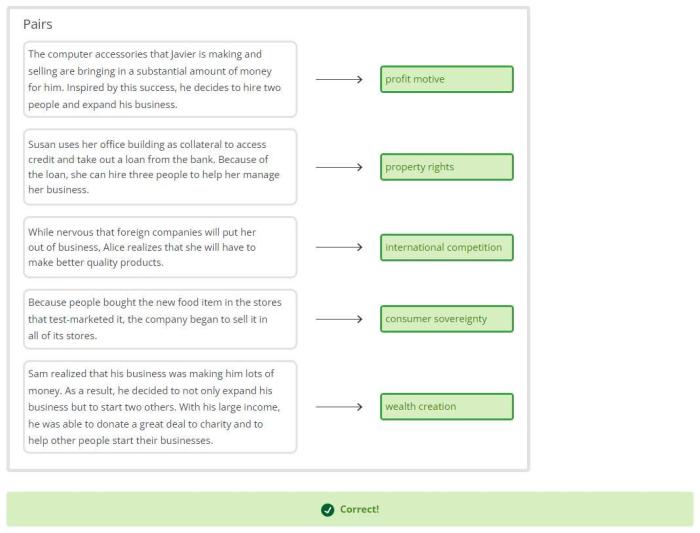Match each theoretical perspective to the corresponding approach to outsourcing. – This exploration delves into the intriguing realm of outsourcing, examining how various theoretical perspectives shape the corresponding approaches to this practice. By scrutinizing the nuances of Transaction Cost Theory, Resource-Based View, Contingency Theory, Agency Theory, and Institutional Theory, we unravel the complexities of outsourcing decisions.
The intricate interplay between theoretical frameworks and practical applications unfolds, revealing the strengths and limitations of each perspective. Through real-world examples and insightful analysis, we uncover the factors that influence outsourcing choices and the implications for organizational success.
Theoretical Perspectives on Outsourcing: Match Each Theoretical Perspective To The Corresponding Approach To Outsourcing.

Outsourcing, the practice of contracting out certain business functions to external providers, has become increasingly prevalent in today’s globalized economy. Various theoretical perspectives offer insights into the factors that influence outsourcing decisions, providing a framework for analyzing and evaluating the potential benefits and risks involved.
Transaction Cost Theory
Transaction Cost Theory, developed by Ronald Coase, posits that firms outsource activities when the costs of coordinating and managing those activities internally exceed the costs of contracting with an external provider. Transaction cost factors include:
- Asset specificity: The degree to which assets are specialized for a particular transaction.
- Uncertainty: The extent to which the future is uncertain and difficult to predict.
- Frequency: The number of times a transaction is repeated.
Transaction Cost Theory suggests that outsourcing is most beneficial when asset specificity is low, uncertainty is high, and transaction frequency is low.
Resource-Based View
The Resource-Based View focuses on the unique and valuable resources that firms possess and how these resources can be leveraged to create a competitive advantage. Outsourcing can be a means of acquiring or accessing resources that a firm lacks or cannot develop internally.
These resources can include:
- Tangible resources: Physical assets, such as equipment and facilities.
- Intangible resources: Intellectual property, such as patents and trademarks.
- Human resources: The skills and knowledge of employees.
The Resource-Based View suggests that outsourcing is beneficial when it allows firms to focus on their core competencies and leverage external resources to enhance their overall competitiveness.
Contingency Theory
Contingency Theory emphasizes the importance of context and environmental factors in shaping outsourcing decisions. It suggests that the optimal outsourcing strategy depends on a variety of contingencies, such as:
- Industry environment: The level of competition, technological change, and regulatory pressures.
- Firm size and capabilities: The resources and expertise available to the firm internally.
- Outsourcing market: The availability and quality of external providers.
Contingency Theory suggests that there is no one-size-fits-all approach to outsourcing and that firms should tailor their strategies based on their specific circumstances.
Agency Theory
Agency Theory examines the relationships between principals (outsourcing firms) and agents (outsourcing providers). It highlights the potential for conflicts of interest and the need for mechanisms to align incentives and mitigate risk. Agency costs include:
- Monitoring costs: The costs of overseeing the agent’s performance.
- Bonding costs: The costs of establishing contracts and guarantees.
- Residual loss: The potential losses that occur due to the agent’s self-interest.
Agency Theory suggests that outsourcing is beneficial when the agency costs are lower than the potential benefits and that firms should implement appropriate governance mechanisms to mitigate risk.
Institutional Theory, Match each theoretical perspective to the corresponding approach to outsourcing.
Institutional Theory focuses on the influence of institutional factors, such as social norms, cultural values, and legal regulations, on outsourcing decisions. It suggests that firms are influenced by the institutional environment in which they operate and that outsourcing can be a means of conforming to or gaining legitimacy within that environment.
- Legitimacy: Outsourcing can enhance a firm’s legitimacy by aligning its practices with industry norms.
- Isomorphism: Outsourcing can be a means of mimicking the practices of other firms in the industry.
- Institutional voids: Outsourcing can fill gaps in the institutional environment when necessary infrastructure or resources are lacking.
Institutional Theory suggests that outsourcing decisions are influenced by the institutional context and that firms should consider the potential impact of outsourcing on their legitimacy and reputation.
FAQ Insights
What are the key principles of Transaction Cost Theory?
Transaction Cost Theory focuses on the costs associated with market transactions, including search, negotiation, and enforcement costs. It suggests that outsourcing is beneficial when these costs are lower than the costs of performing the activity internally.
How does the Resource-Based View contribute to outsourcing decisions?
The Resource-Based View emphasizes the importance of an organization’s unique resources and capabilities. It suggests that outsourcing is appropriate when the activity in question is not a core competency or when external providers can offer superior resources.
What are the advantages of using Contingency Theory in outsourcing?
Contingency Theory provides a framework for analyzing the factors that influence outsourcing decisions, such as the nature of the activity, the industry context, and the organization’s size and capabilities. It helps organizations tailor their outsourcing strategies to their specific circumstances.

